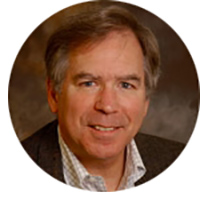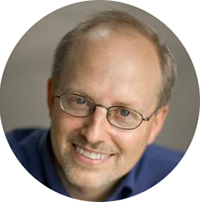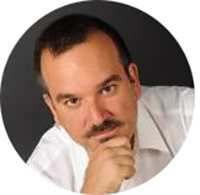International Scholars Reflect on HSE Political Science Conference
The 4th Annual Conference of the International Center for the Study of Institutions and Development (ICSID) ‘Institutions, Elites and Collective Action in the Developing World’ took place at the Higher School of Economics in Moscow on June 30-July 1, 2015. It was preceded by an EACES-HSE Workshop ‘Political Economy of Development: New Challenges and Perspectives’ on June 29, 2015. Several international researchers have spoken to HSE News Service about the conference and their research projects.

Thomas Remington, Senior ICSID researcher, Goodrich C. White Professor of Political Science at Emory University in Atlanta, Georgia
My impressions of this conference are very positive. Many of the people who are presenting know each other and have been working together. In many cases we know about a project they’ve been working on, now we get to see the results of the work. Other participants are here whom at least I don’t know (or at least beforehand I did not know), it’s quite interesting to learn about their interests. All of the papers that are presented here are connected by a common set of themes, they are reflected in the conference title: institutions obviously, it’s a political economy perspective on economic and political outcomes. There’s an interest in elites. You see, as in this paper an increasing interest in using historical data. So there are many common issues which unite them. It is also satisfying to hear very intelligent methodological debate. Some of the people at this conference are extremely sophisticated in methodology. To have their comments on methodological questions helps me to learn a lot from that. As with any good conference there is also a social aspect. You enjoy seeing colleagues, you enjoy talking to them.
As for my paper on ‘The Reform of Skill Formation in Russia: Regional Responses’ — I have long been interested in using the regions in Russia as a way of exploring variation in important social, economic and political questions. Several years ago I published a book on inequality and variation across the Russian regions and political, social and economic forces that are affecting inequality. One of the ways I thought we could learn about social policy was by observing the process of change in a system of forming skills. It’s “professional’noe obrazovanie” or “professional’noe obuchenie” [vocational education or vocational training] - in Russia you had a very well structured system of professionalnoye tekhnicheskoe obrazovaniye [vocational training]. Along with much else in a planned economy it has to be changed in order to support a competitive economy. And everyone at the federal level and at the regional levels understands this. We thought the reform of vocational or professional education would give us a window through which we could observe the institutional conditions under which we would see successful reforms. And because we are seeing a great deal of variation across the regions we do indeed have a chance to see why some regions have moved faster than the others. We have been able to observe the interaction between the federal government and regional governments, interaction between firms, including foreign firms and schools and governments. My colleagues and I see this as an institutional problem, it’s how do you structure rules in such a way as to induce behavior that will benefit everyone? How do you raise the overall development level of the country? This sphere of vocational education is a very concrete sphere, where everyone understands it is in everyone’s benefit to raise the quality of the system. But not everyone is able to achieve that. We don’t regard this project as being advice to policy makers, we simply want to record what we observe and to analyze it.
In cooperation with HSE I have a formal agreement with ICSID (the International Centre for the Study of Institutions and Development), of which Andrei Yakovlev is the head. I am one of the team of scholars, Russian and foreign. I spend three weeks a year in Russia doing collaborative work. I find this to be an unusually productive period because you can work intensively for several days with your co-authors, discussing how to move the project forward. And that’s what we do: we say, let’s write a paper about this, and then you draft it, you present it at the conference and you get comments, then you rewrite it and you think that you can take this project and move it in this direction and so on. I’m involved in several such projects, one concerns vocational education reform, and another is a comparison of regional political officials in Russia and China, to understand what incentives they are responding to. We are comparing Russian governors and Chinese chief executives, governors at the provinces and the party secretaries. China has the system like the old Soviet system. And the question is how are they appointed, what are their career patterns, what are the pressures on them, what are their goals.

Timur Kuran, Professor of Economics and Political Science and Gorter Family Professor in Islamic Studies at Duke University
I have not been to this conference before. This year’s conference has been excellent. The quality of the presentations is high, discussions are also productive. The presented papers are at the frontiers of knowledge, both substantively and methodologically.
I myself presented a co-authored paper, ‘The Financial Power of the Powerless: Socio-Economic Status and Interest Rates under Partial Rule of Law’. Many countries around the world, including Russia, have not concluded the transition from natural state to an open access order, from partial rule of law to full rule of law. The paper addresses that transition. I thought it was relevant to this audience, which is why I presented it.
If I am invited to this conference again, I’ll be happy to come back. The core group is very interesting. I’m favorably impressed by the university as well. Conferences of this type will contribute to building its reputation.

Theocharis Grigoriadis, Assistant Professor at the Free University of Berlin, Germany
I think it’s a great conference that brings scholars from Europe and the United States who work on comparative economic systems and political economy of development. It creates a forum for discussion of the main research topics that are interesting for all of us.
Yesterday, I presented during the workshop of the European Association of Comparative Economic Studies on ‘Political Economy of Development: New Challenges and Perspectives’, where I delivered a paper on ‘Finance and Revolution in Late Imperial Russia’. I’m working on game theoretic analysis of institutions, and my paper was on a formal model of the effects of Witte reforms on inequality and the propensity for the Russian Revolution.
I believe that economic history is always a part of economics and that it contains all the data we want in order to respond to contemporary economic problems. Just think of the Great Depression in the US: everybody who wants to talk about US or European economic policy today mentions the Great Depression. I think the same can happen for Russia. Russia should look more into its imperial past. The economic structure of the Russian Empire also can answer contemporary questions.
We are planning full-scale cooperation between the Institute of East European Studies at the Free University of Berlin and the Higher School of Economics. My presence here is also related to these bigger plans for cooperation, but of course, I have the opportunity to meet colleagues with whom we share common interests and exchange opinions. Having been a visiting Master’s student from Yale in this building at HSE in summer 2004, it’s always a great pleasure to come back.
Thomas Frederick Remington
Andrei A. Yakovlev
See also:
The ICEF-CInSt Conference as a Platform for International Research Networking
On November 24–25, 2023, the 12th ICEF-CInSt International Finance Conference took place in Moscow. Researchers from Russia, China, Hong Kong, Taiwan, the USA, Canada, Italy, and the United Kingdom contributed as speakers and discussants. The organisers and participants of the conference shared their impressions of the event with the HSE News Service.
‘Studying Is an Invaluable Opportunity to Learn from Experts and Explore Diverse Perspectives’
Mateo Rojas Samper, from Colombia, is a student of thePolitics. Economics. Philosophy master’s programme at the HSE University Faculty of Social Sciences. Matteo spoke to the HSE News Service about the importance of engaging in both theory and practice in his studies at HSE University, as well as his participation in the Model United Nations and the Russia–Latin America International Parliamentary Conference.
‘Our Experimental Economics Community Welcomes Everyone from Professors to Bachelor’s Students’
From September 19–27, 2023, the Third Pacific School Conference on Experimental Economics (PSEE) will take place in Vladivostok. The conference has been organised by the HSE UniversityInternational Laboratory for Experimental and Behavioural Economics as part of the Mirror Laboratories project with the Research Laboratory for Modelling Socio-Economic Processes at Far Eastern Federal University. The conference will be held in an in-person format, and foreign participants can take part online.
HSE University Shapes Global Chain of Foresight
The COVID-19 pandemic has demonstrated our swift adaptation to big challenges and strengthened cooperation ties between researchers, politicians, and entrepreneurs on national and global levels. The accumulated life and goal setting practices in the new reality will be discussed on October 15–26, 2021 by participants of the XI International Academic Conference ‘Foresight and Science, Technology and Innovation Policy’ organised by the Institute for Statistical Studies and Economics of Knowledge (ISSEK).
Conference Brings Together New Perspectives on the Russian Far East
On March 28-31, 2021, the HSE International Laboratory ‘Russia’s Regions in Historical Perspective’ held an international conference ‘The Russian Far East: Regional and Transnational Perspectives (19th -21st cent.)’. The event was jointly organized by the Laboratory with the German Historical Institute Moscow, Indiana University Bloomington (USA), and the Institute of History, Archeology and Ethnography of the Peoples of the Far East FEB RAS (Vladivostok).
Neurotechnology: The Decline of Freedom or New Horizons for Human Development?
On March 18, HSE University will host the international Neurotechnology & Freedom Conference, which will be held online. In an exchange with HSE News Service, Vasily Klucharev, director of the Institute for Cognitive Neuroscience and tenured professor at HSE University, discussed what views on the compatibility of these two concepts exist in modern science and art.
HSE Becomes Analytical Partner of the Global Impact Conference
How can we achieve balanced growth of the global economy? What is a human-centred approach for economic growth? How can we measure the contribution of corporations to sustainable development? On December 1- 2, visionaries of sustainable development — more than 50 international experts from 23 countries, including representatives of government organizations and businesses, non-profit organizations, and civil society activists — will answer these questions at the Global Impact Conference.
Poletaev Readings Consider New Turns In and Away from Theory in the Humanities
The Poletaev Readings, dedicated to the memory of Andrey Poletaev, one of the founders of the Poletaev Institute for Theoretical and Historical Studies in the Humanities (Russian acronym — IGITI), is a major annual event of the Institute. The event was set to mark its 10th anniversary in 2020, but due to the pandemic, the anniversary forum has been postponed to 2021. In its place, the organizers have arranged the Poletaev Readings 9¾, which were held online. HSE News Service spoke with the event organizer and some of the participants.
2020 iCare Participants Discuss the Economic Effects of the Pandemic, the Accessibility of Higher Education in Russia, and More
On September 21, the VIII International Conference on Applied Research in Economics (iCare) was held online, bringing together more than 100 researchers from 19 countries. Organizers, speakers, teachers, and students shared their impressions of the event and talked about the opportunities that the conference opens up for them.
HSE University Brings Major Conference in Philosophical Logic to Russia for the First Time
On October 2-4, HSE University hosted the international conference Trends in Logic 19. Current Issues in Philosophical Logic for the first time in Russia. The conference, which attracted a number of prominent Russian and international scholars, was organized jointly by the journal Studia Logica and the HSE International Laboratory for Logic, Linguistics and Formal Philosophy.


